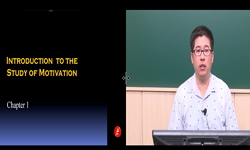Ⅰ. 서론 Ⅱ. 제2언어습득에서 동기와 언어불안감 Ⅲ. 연구 문제 Ⅳ. 연구방법 Ⅴ. 결과 및 논의 Ⅵ. 결론 및 시사점 참고 문헌 부록 - 영어 학습에 대한 설문지(총 45문항)
http://chineseinput.net/에서 pinyin(병음)방식으로 중국어를 변환할 수 있습니다.
변환된 중국어를 복사하여 사용하시면 됩니다.
- 中文 을 입력하시려면 zhongwen을 입력하시고 space를누르시면됩니다.
- 北京 을 입력하시려면 beijing을 입력하시고 space를 누르시면 됩니다.
동기와 언어불안감이 영어 말하기능력에 미치는 영향
한글로보기https://www.riss.kr/link?id=G3784776
- 저자
-
발행기관
-
-
발행연도
-
-
작성언어
Korean
-
주제어
영어 말하기능력 ; 동기 ; 언어불안감 ; 지향성 ; 불안감 ; 학습지향성 ; 태도 ; English speaking skills ; foreign language ; motivation ; anxiety ; orientation ; attitude
-
자료형태
한국연구재단(NRF)
-
0
상세조회 -
0
다운로드
부가정보
국문 초록 (Abstract)
Ⅱ. 제2언어습득에서 동기와 언어불안감
Ⅲ. 연구 문제
Ⅳ. 연구방법
Ⅴ. 결과 및 논의
Ⅵ. 결론 및 시사점
참고 문헌
부록 - 영어 학습에 대한 설문지(총 45문항)
Ⅰ. 서론
Ⅱ. 제2언어습득에서 동기와 언어불안감
Ⅲ. 연구 문제
Ⅳ. 연구방법
Ⅴ. 결과 및 논의
Ⅵ. 결론 및 시사점
참고 문헌
부록 - 영어 학습에 대한 설문지(총 45문항)
다국어 초록 (Multilingual Abstract)
This study examines the effects of Korean EFL learners’ motivation and anxiety on their English speaking skills with a structural equation approach. The participants of the study are 193 college students enrolled in English conversation classes. The...
This study examines the effects of Korean EFL learners’ motivation and anxiety on their English speaking skills with a structural equation approach. The participants of the study are 193 college students enrolled in English conversation classes. The questionnaire on learning orientations, attitudes toward the community of native speakers of English, motivational intensity, class satisfaction and anxiety are given to the college students and their English speaking skills are assessed in terms of IATEFL’s criteria: Range, ease of speech, attitude, delivery, and interaction. Reliability and factor analysis are employed to confirm the internal consistency of questionnaire items and the validity of construct, and a structural equation model is run to examine the relation of Korean EFL learners’ affective aspects to their English speaking skills. The findings of the study are as follows: (1) while Korean learners’ attitudes toward native speakers of English and their community do not contribute to their desire to learn English, their learning orientations are found to affect their desire to learn English. (2) class satisfaction and desire to learn English are found to affect learners’ efforts to learn English, while anxiety is found to negatively contribute to leaners’ motivation intensity. (3) both integrative orientation and anxiety have direct effects on English speaking skills, integrative orientation affirmatively but anxiety negatively. Based on the findings, some suggestions are given for effective second language learning and teaching











